Key takeaways
Over the last few years, the banking industry has undergone a drastic transformation driven by what seems like a perfect storm of disruptive tech advances, shifts in customer demand and an uncertain economy. Perhaps the biggest threat has been the rise of neobanks like Monzo, Revolut, Wise, and others (there are about 272 of them worldwide).
These tech-driven players appeal to younger, digitally savvy customers by offering more agile, transparent, convenient, and flexible terms of service, often at a lower cost—and the number of people making the switch is growing yearly.
Enter HSBC’s Zing, a new International money app designed to provide the speed and seamlessness of a neobank, backed by the security, reputation and global reach of a traditional bank. Open to all customers (not just HSBC’s), Zing offers the hyper-convenience users need when making international transfers, all while introducing new customers to HSBC services.
Let’s take a closer look at how the value proposition behind Zing was born and the role Bundl played in bringing the concept to life, with the goal of helping HSBC reach new customers, compete with tech-driven players, and fortify its position as one of the world’s leading banks.
Finding the right value propositions
The international money transfer market has traditionally been underserved and fragmented, with few providers able to meet the customer demand for a one-stop, fast and fairly priced solution. Our market validation journey began with a specific challenge:
How can we create and test desirable, feasible, viable value propositions in the international money transfer space?
Our goal was to define different aspects of the new venture, including branding, potential target audiences, business drivers, and critical assumptions. We also set out to validate our assumption that combining:
- An innovative international money app with transparent fees
- The backing of a traditional bank would actually be a compelling enough proposition in the market to get customers to adopt the service from either a normal retail bank or a fintech like Wise/Revolut.
The results would heavily influence HSBC's decision to proceed with launching the product.
To do this, we set 3 initial objectives:
- Find and validate the best target customer segment
- Validate the best value proposition
- Validate a viable path to mass market scale and viability (i.e. there would be a significant number of people willing to adopt/switch to the service)
Ideating and validating the concept
At Bundl, we use a 6-step process divided into 2 phases. The first is the venture ideation phase, and the second is the venture validation phase. Each step has its own unique goal and output:
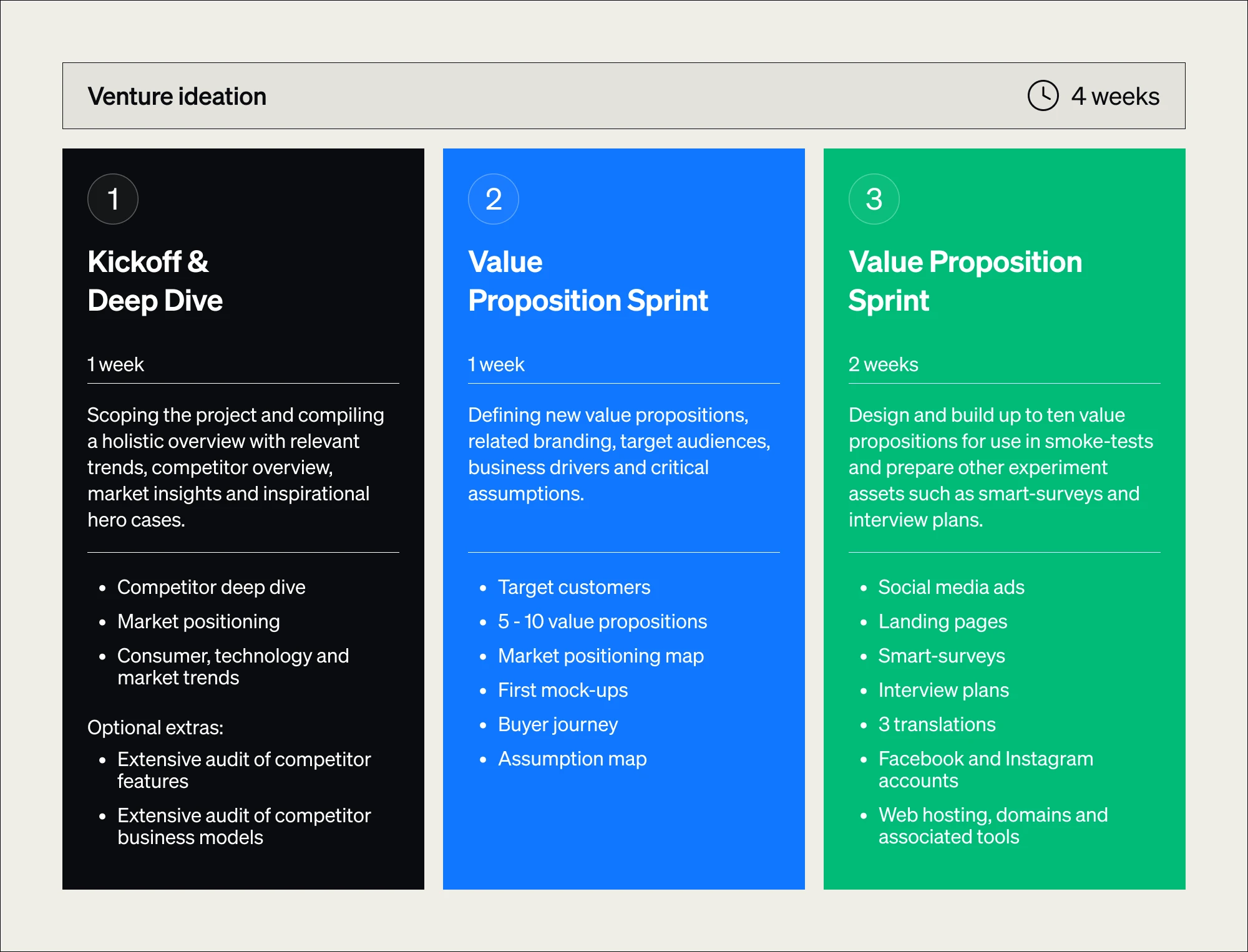
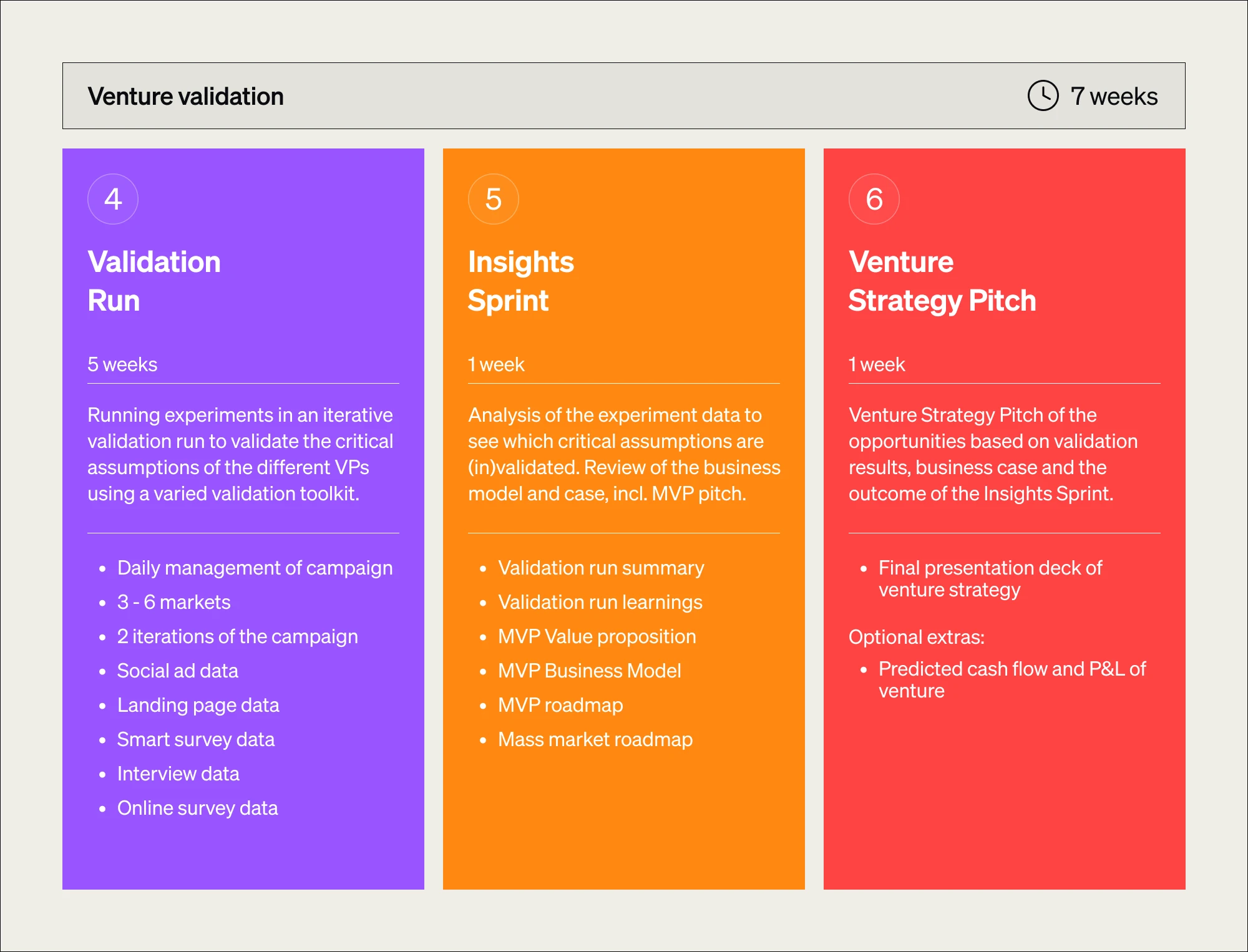
To do this, we set 3 initial objectives:
- Find and validate the best target customer segment
- Validate the best value proposition
- Validate a viable path to mass market scale and viability
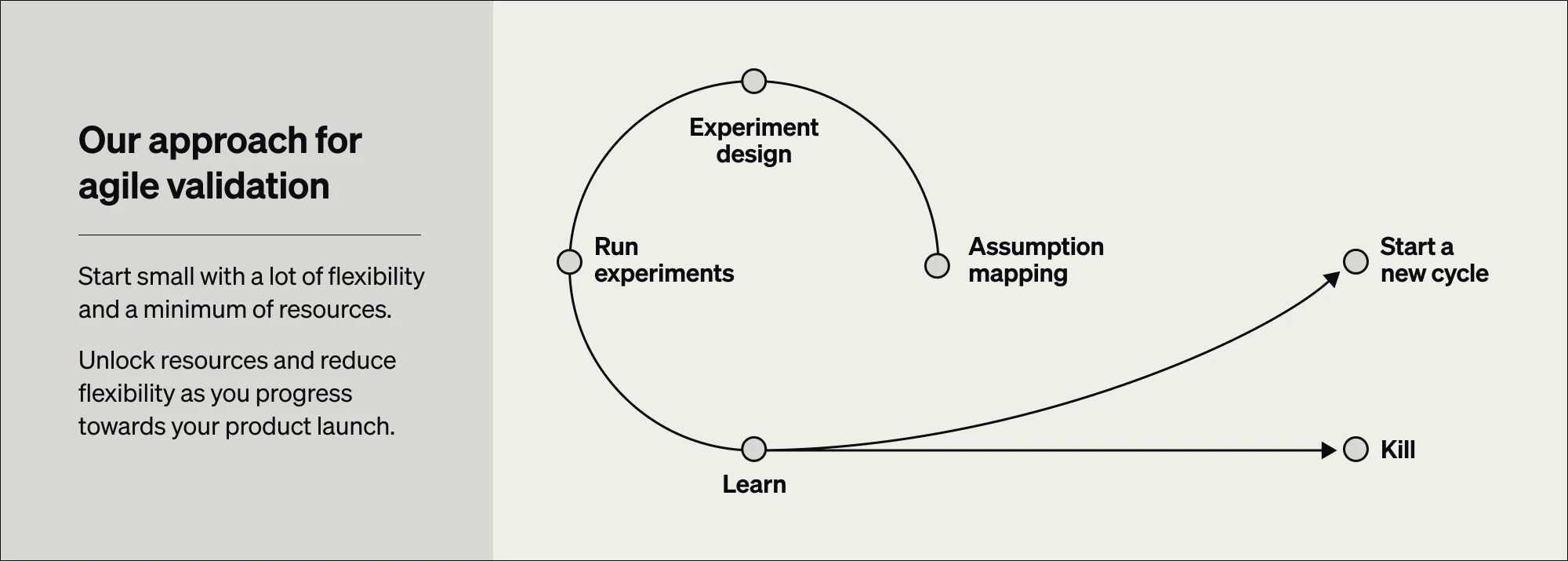
We kicked off the validation process by mapping out the factors we wanted to test:
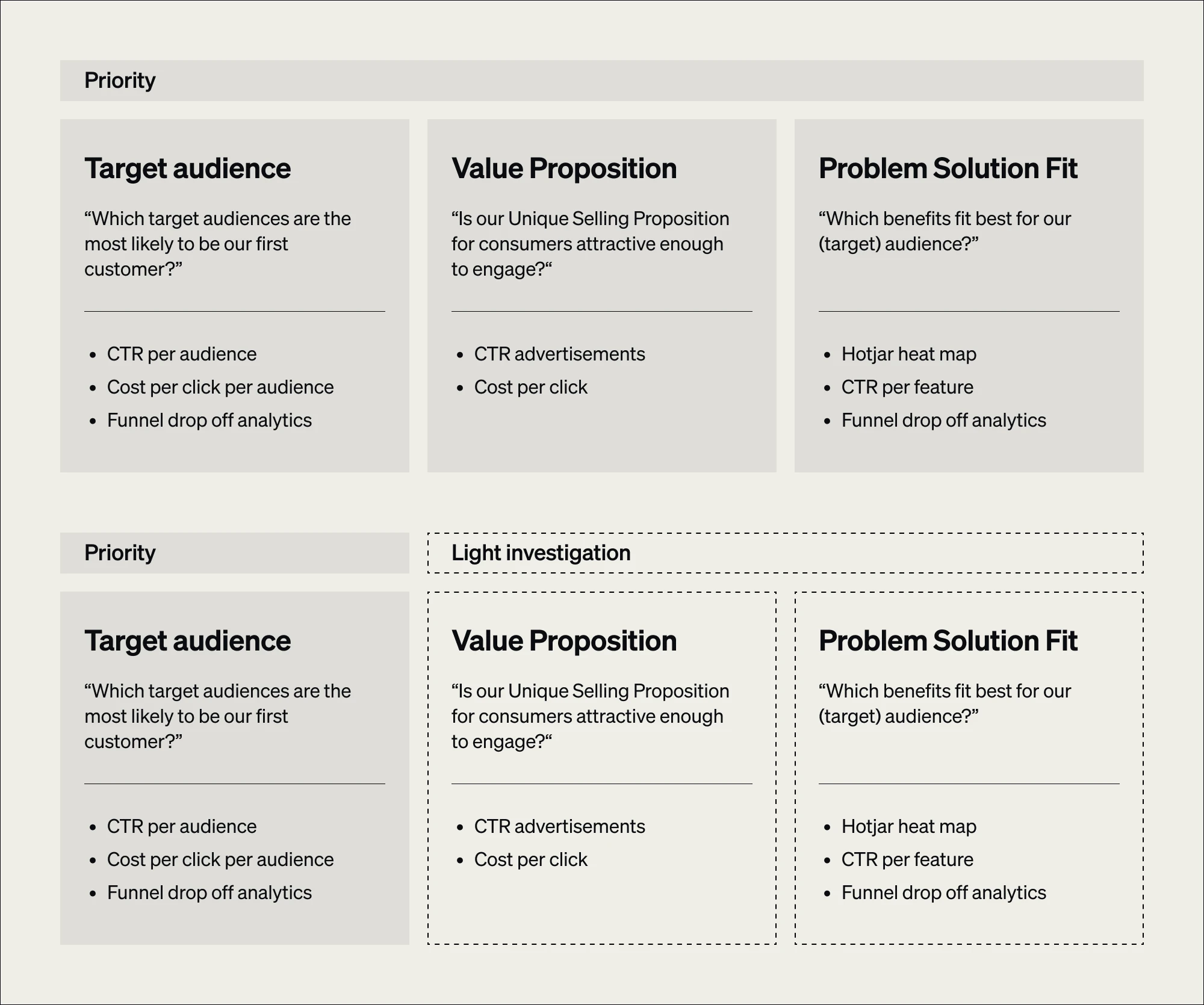
We then moved on to validate the critical assumptions of the different value propositions using a variety of experiments and lean validation techniques, including (but not limited to):
- In-depth interviews
- Online surveys
- Smart surveys
- Social media ads
- Smoke tests
A winning venture is born
Based on our initial results, we were able to map the existing landscape, identify high-potential audiences, list their money transfer needs, and pinpoint how existing players were meeting them. This initial map became the foundation for Zing, which now boasts 36,000 downloads, supports 20 major currencies, and has been spun off from HSBC to become a thriving independent entity.
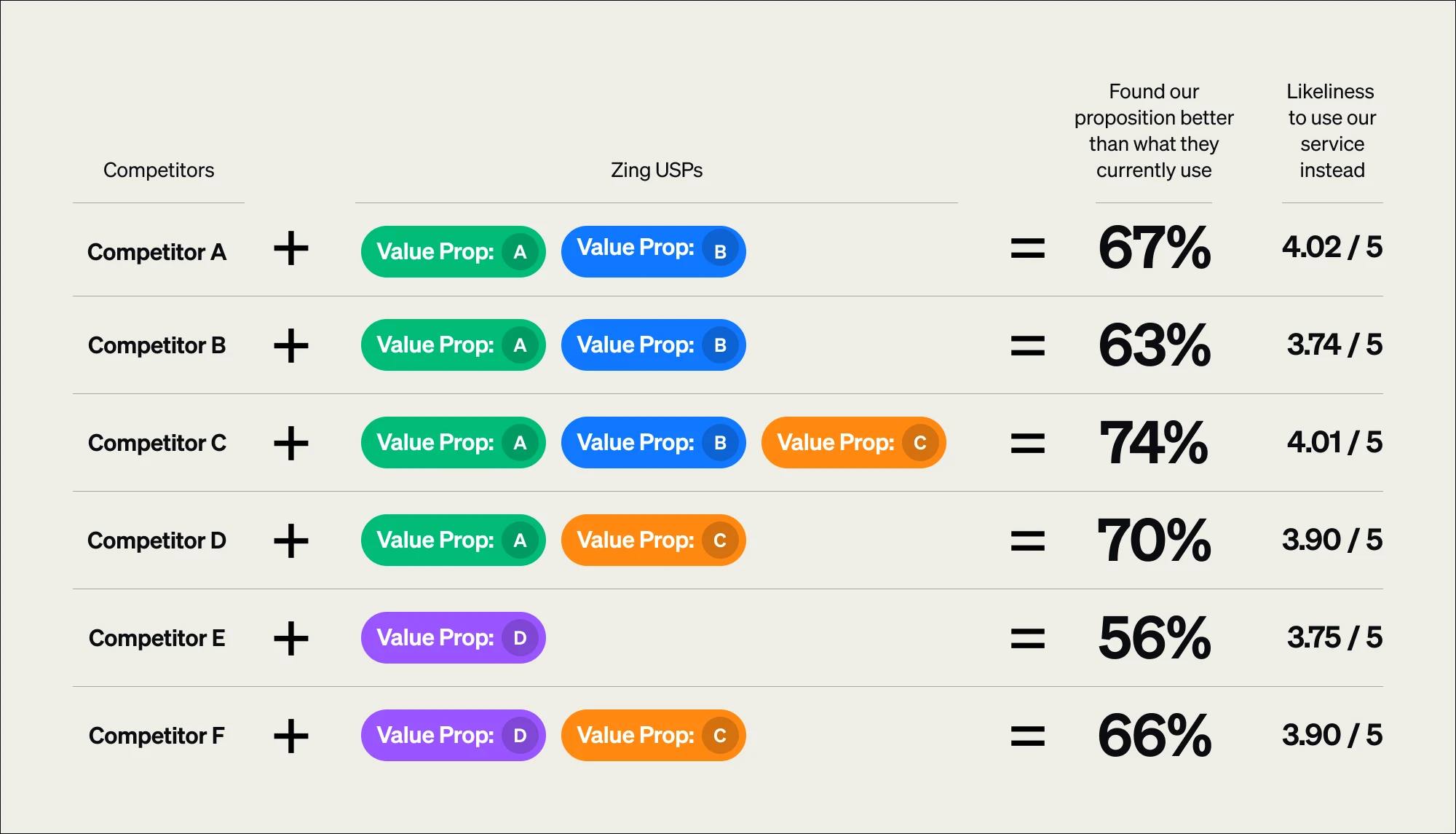
Although the app is currently only available in the UK, plans for expansion have been in place since the beginning. As explained by CEO and founder James Allan:
“The plan [for Zing] is built on operating in international markets, and work is already underway on those markets as we speak”.
As Zing becomes available in more countries and remains open to users outside HSBC, it’s bound to attract more users, not just for itself but also for the parent company. For more updates about Zing, be sure to check its website or download the app, which is available through Google Play or the App Store.
___
Want to test your venture concept? We can help you leverage lean validation techniques to minimise risks and maximise returns with data from real customers, no matter what venture stage you’re in.
50+ Lean Validation Experiments
Test ideas faster, validate smarter, and de-risk ventures at every stage with these real-world, battle-tested experiments.








